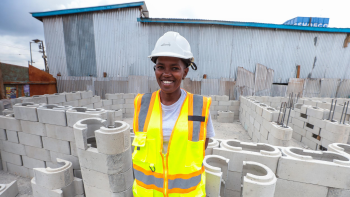Emerging Opportunity: The Hidden Role of Sheltertech in Climate Tech Investing
The challenges of climate change pose a risk for everyone, but the impacts disproportionate affect the most vulnerable populations in the Global South. Climate change and housing construction are closely linked and the affordable housing sector presents many opportunities for investments focused on climate adaptation and resilience. This is especially so for sheltertech, a term used to describe the sector and start-ups working on products and services related to affordable housing.
Despite the strong linkage between climate change and quality, climate-resilient housing, investment in sheltertech has been significantly lower than, for example, investment in other climate tech solutions, such as electric vehicles.
The challenges of climate change pose a risk for everyone, but the impacts disproportionate affect the most vulnerable populations in the Global South. Climate change and housing construction are closely linked and the affordable housing sector presents many opportunities for investments focused on climate adaptation and resilience. This is especially so for sheltertech, a term used to describe the sector and start-ups working on products and services related to affordable housing.
Despite the strong linkage between climate change and quality, climate-resilient housing, investment in sheltertech has been significantly lower than, for example, investment in other climate tech solutions, such as electric vehicles.
Climate Adaptation Through Housing: Examples of Effective Interventions in Informal Settlements
Globally, an estimated 1.1 billion people live in inadequate housing conditions in informal settlements while bearing the brunt of climate change. Lack of access to adequate housing participates in reinforcing poverty conditions which climate risks amplify even further through cascading effects.
Faced with multiple vulnerabilities simultaneously, residents of informal settlements need to be better supported with regard to their living conditions so they can build resilience to climate change.
Globally, an estimated 1.1 billion people live in inadequate housing conditions in informal settlements while bearing the brunt of climate change. Lack of access to adequate housing participates in reinforcing poverty conditions which climate risks amplify even further through cascading effects.
Faced with multiple vulnerabilities simultaneously, residents of informal settlements need to be better supported with regard to their living conditions so they can build resilience to climate change.
